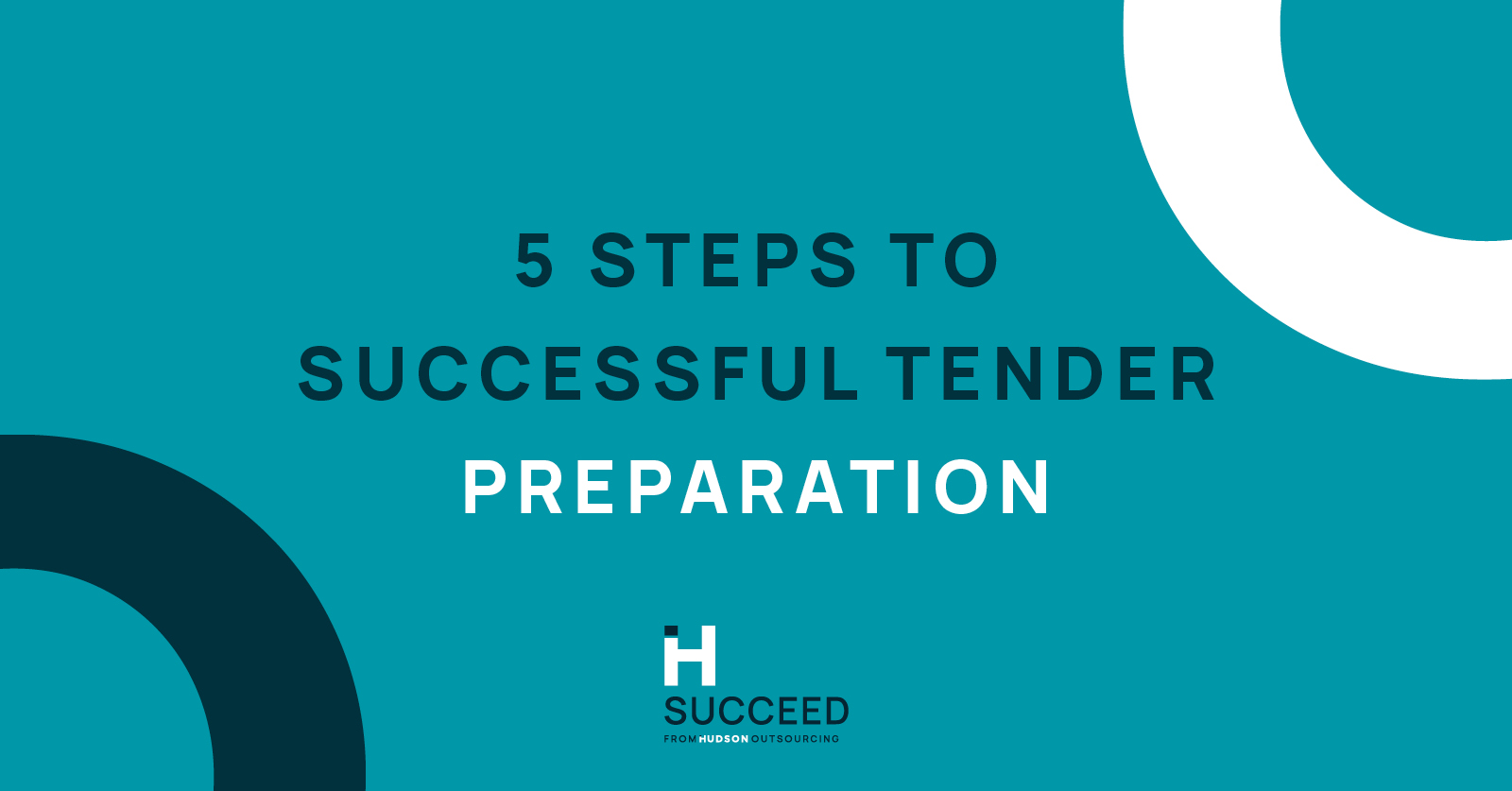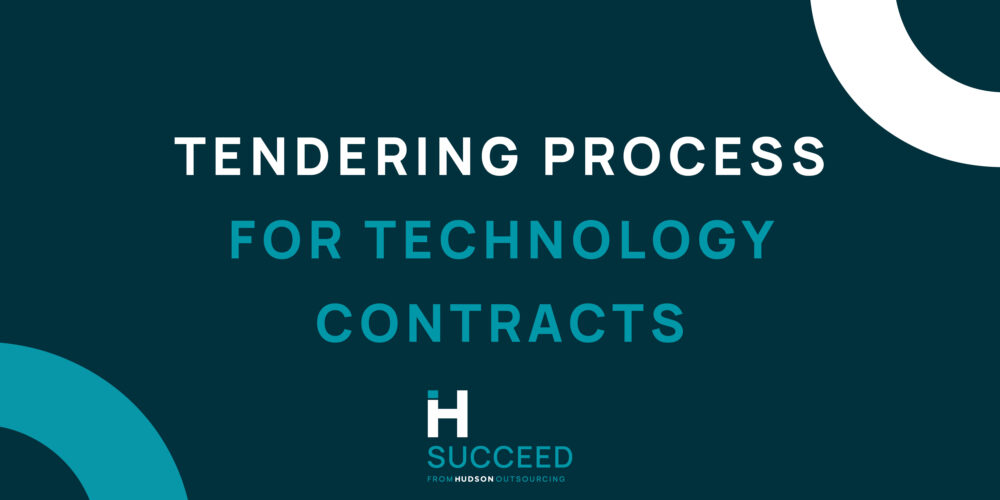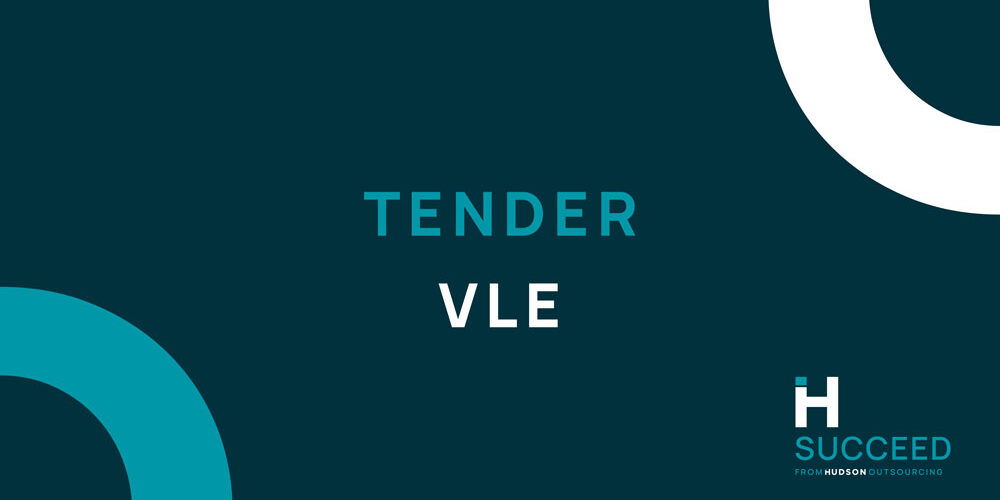Preparation of Tender Documents – 5 Steps to Success
Last updated: Feb 20, 2023 @ 11:56 am
Preparation of tender documents can often be difficult and time-consuming, even for those with years of experience in tender preparation and Bid Management. Commonly, people believe that bid writing is a skill that can be picked up by anyone who can write and string words together nicely. Although this is a key element, tender preparation takes an element of planning and diligence that flair with words must be partnered with. Below are steps you can take to ensure expert preparation of your tender documents to produce a winning bid.
Step 1: Development of Content
- Anyone who has worked on large tenders knows the feeling of staring down a tender which has 20 questions with a 1,000-word limit each. Wondering where to begin is something we have all experienced and managing this alongside busy schedules and workloads can be difficult for any business looking to grow.
- Not only this, but writing may not be your speciality. Let’s say you are a cleaning company, your approach to working may often be hands-on. Perhaps this means that words may not just naturally flow when it comes to writing your approaches.
- The best piece of advice when it comes to the preparation of tender documents is to plan. Breaking down large tenders and tackling them bits at a time can be the best way to effectively prepare your tender documents.
- The art of delegation can be key when tackling large pieces of work.
- For example, your business may be tendering for the development of a website. The tender may be broken into sections whereby it asks for your approach to back-end development followed by front-end. Now for those who don’t understand what this means, front-end development consists of the user-facing side of a website, so comprises of things like user interface and customer interaction. Back-end refers to the stuff that users don’t see when they visit a website. Think of it more like the engine of a car, it is what powers the website but is not directly visible to the public. Here, it will be key to get your experts in front-end development to work on this content and your experts in back-end development to handle the back-end development stuff. Sounds easy enough, but having this planned out and in place before you begin, can make the whole tender preparation process much easier.
Step 2: Formatting
- Although this sounds fairly obvious, many people overlook this when preparing tenders and lose marks and generally put off buyers.
- What must be considered when preparing tenders is time to go over your documentation and ensure consistency and alignment throughout. More information can be found in our interview with our Head of Creative, Kathryn Johansen.
- For example, let’s say you are a construction company that specialises in project management and surveying. The tenders you create are likely to be long, and complex and include many different elements. Many tenders we have developed in the past have been in excess of 30,000 words. This is something that cannot simply be skimmed over in half an hour!
- Take your time, triple-check everything and most importantly, have someone else check your work. Even the most experienced and skilled bid writers have their off days and when developing large pieces of work, it is easy to become attached and fail to view it from an objective standpoint.
- Remember, consistency is key.
Step 3: Case studies
- Evidence is always vital in tendering, especially when you are submitting responses for technical work.
- For example, if you are an engineering company that specialises in the structural engineering of bridges, then it will be key that you have at least three well-developed and detailed case studies when tendering for contracts of this nature.
- Developing detailed case studies involves teamwork, especially when it comes down to technical work that involved multiple elements of your organisation working together.
- The successful preparation of tender documents will involve working together to ensure that case studies are well-developed and in place.
- You are submitting a response to a buyer looking for a specific requirement fulfilling; hence, you must display your previous ability.
- Having detailed and developed case studies in place will help ensure future tender preparations run smoothly and is a worthwhile task for any business moving forward.
Step 4: Boilerplate responses
- What a lot of businesses overlook when tendering is forward planning. Preparing for tenders doesn’t always have to be in the moment.
- It may have been a few months and the right tender just may not have appeared. A lot of things play a factor in whether you can go for a tender: costing, location, turnover, and accreditations. These factors can dictate whether or not the tender is for you.
- However, that is not to say the right one won’t come up in the future. Let’s say you specialise in events management for the creative industry, but the right one doesn’t quite seem to be appearing.
- If you know which area it is you specialise in, then researching previous tender advertisements and looking at what general responses could be developed will help you prepare for that all-important tender.
- Look for trends in previous tenders, look for what is commonly asked for and develop content around this. For example, we know from our experience that questions on social value, quality management, environmental management and added value are common topics.
- Developing boilerplate responses which can be adapted and modified to buyers’ specific requirements can help take the stress away from preparing tenders — making the process much smoother.
- Everyone experiences peaks and troughs in workloads. Much like London buses, many may come when you least expect it and this may be when your business is experiencing a peak in workloads. If this is the case, you will be thankful that you prepared accordingly!
Step 5: Design
- What often gets overlooked when preparing tender documents is design work.
- Competitors will often be designing their work and the key to standing out is having well-designed responses.
- For example, if you are a creative company who are responding to a tender for content development for a website, the buyer will be looking for a creative and attractive response. Essentially, they want a taste of your company’s ability to meet their demands.
- Your response will get overlooked if you submit a blank, non-designed response.
- Factoring in design work when responding to tenders can be essential to seeing success, particularly if the buyer is looking for a creative solution to their requirement.
- However, what is key here is working out whether or not design work is acceptable. Many buyers will stipulate a format that you must adhere to — failing to follow this can harm your tender response!
In Conclusion
Ultimately, preparing tender documents can be time-consuming and difficult. However, fortune always favours the prepared. So, ensuring you have as much in place as possible is key to seeing success when tendering!
Further Support
Here at Hudson, we have 50 years’ collective experience in tender preparation and our bid consultants team has created responses across multiple different sectors.
We offer a service called Tender Ready. The Tender Ready programme will ensure that you are thoroughly prepared to tender and go into the tendering process in an advantageous position. Over four weeks, we work with your team to develop and brand your policies, procedures and case studies into a ready-to-go bank of content. However, the support doesn’t stop there! We can also write your first bid, utilising your new content, once the programme is complete.
For any advice, assistance or tips regarding all things tendering, click here to get in touch with our Tender Consultants team today. Not only this, but we have developed the UK’s first free virtual learning environment for all things tendering, Tender VLE, provides companies with hints and tips for achieving success in tendering.
Look out for new masterclasses from Kathryn Johansen, detailing everything you need to know about ensuring your response stands out.
Find more helpful tips and advice in our blogs. We cover topics including:










